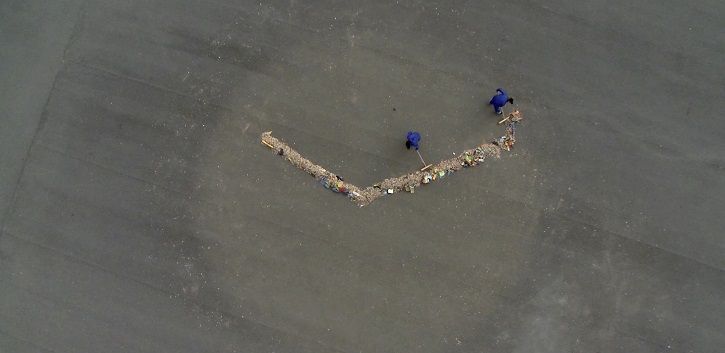Tick-Tock of the Circadian Clock: UCC exhibition to explore biological time

Our circadian rhythms, the innate 24-hour cycles that tell our bodies when to wake up, when to eat and when to fall asleep, will be explored in a new exhibition at the Glucksman, UCC.
For Circadian Rhythms, the Glucksman has partnered with APC Microbiome Ireland SFI Research Centre at UCC, where world-leading researchers are investigating how gut microbes can influence human circadian rhythms to impact obesity, metabolic disease and brain function.
Open to the public this Saturday (August 3), the exhibition will feature Irish and international artists exploring circadian rhythms through reflections on time, the tempo of working life, sleeping patterns, and the impact of modern technologies on biological life.
Deregulation of the circadian clock associated with poorly regulated sleep, such as altered sleep cycles among shift workers, has become a feature of modern life and may influence the likelihood of developing conditions associated with poor health, with the biological effects being studied at APC Microbiome Ireland.
Good morning! Today @Glucksman we launch our new exhibition #CircadianRhythms with our annual Paper party.
— Fiona Kearney (@fionakearney) August 2, 2019
If in #Cork join us at 6pm in a Paper costume to preview the show. pic.twitter.com/JkI0sBogBw
Really cool exhibition called Circadian Rhythms launching in UCC at the Glucksman this weekend - and does this mean that Tehching Hsieh is coming to Ireland @fionakearney?! (I presume it might be video but you never know!) https://t.co/rf4lP7W1wQ pic.twitter.com/p0upKIPuCx
— Aoife Barry (@sweetoblivion26) August 1, 2019
“Our gut microbiome (the collection of bacteria that live in our gastrointestinal tract) plays an essential role in fine-tuning our circadian clock. The microbiome itself has a circadian pattern of activity and sends signals to the human host which help to keep our own circadian clock ticking in perfect time,” said Professor Paul Ross, Director, APC Microbiome Ireland SFI Research Centre.
“Poor diet can disrupt the microbiome and this finely balanced circadian synchronicity and increase the risk for development of cardio-metabolic diseases. We are delighted to have another opportunity to work with the Glucksman creating this innovative platform to communicate APC research.”
Curated by Chris Clarke and Fiona Kearney, the exhibition features the Irish premiere of work by performance artist Tehching Hsieh, who for one year, deprived himself of sleep and travel, to remain in the confines of his studio, punching a time clock on the hour and documenting his appearance.
Glucksman Director, Fiona Kearney, said, “we are delighted to showcase the ideas and world-class research of our colleagues in APC Microbiome Ireland through the imaginative work of contemporary Irish and international artists. Art and science are linked through creativity, observation and experimentation and this exhibition will give people an opportunity to reflect on how daily and seasonal changes impact the everyday rhythms of our lives.”
Renowned Dutch designer Maarten Baas’s 12-hour film Real Time: Sweeper’s Clock documents two handymen sweeping refuse in two lines that function as the two hands of a manual clock. The time of the film is accurate to the time of day where it is being watched, enabling audiences to tell the minute and hour due to the continuous labour of the workers, evocative of the continuous labour of shift workers in modern society.
Indian artist Jitish Kallat’s sculptural works in the exhibition include Glyph, an imposing cast concrete mattress that metamorphoses into a motorway bridge, collapsing rest and travel into a single contradictory object.
In the exhibition’s Discovery Zone, visitors can explore the microbiome and how it regulates our circadian rhythm and interact with the Mind Your Microbes app and Circadian Rhythm Hourglass, created by APC Microbiome Ireland, to see the effect of age, diet and exercise on our microbiome and in turn, our internal body clock.
Other artists featured in the exhibition, which runs until November 3, include David Beattie, Suki Chan, Jitish Kallat, Caoimhe Kilfeather, Barbara Knezevic, Michael Landy, Rivane Neuenschwander and Michael John Whelan.
Circadian Rhythms is supported by APC Microbiome Ireland SFI Research Centre, University College Cork, The Arts Council Ireland, and private philanthropy through Cork University Foundation.
